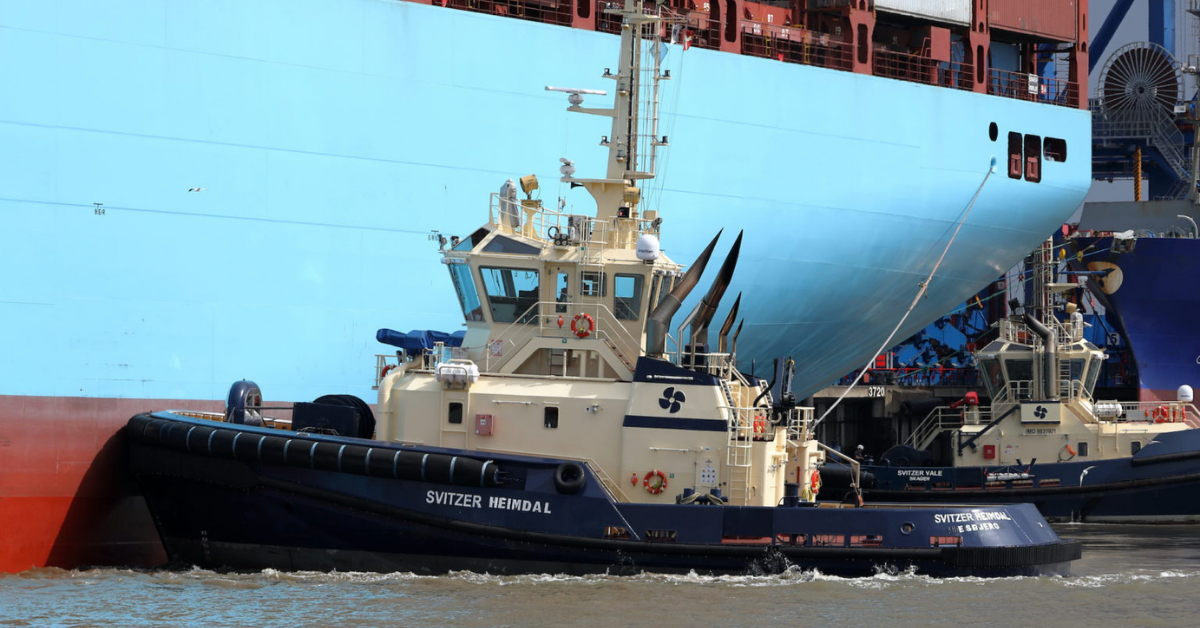Towing operator Svitzer has signed an agreement with Robert Allan, a leading naval architect company, to design the world’s first fuel cell tug for harbor operations, running on green methanol.
Svitzer is the towage company owned by A.P. Moller – Maersk. The project builds on Maersk’s effort jointly explore the combination of methanol fuel cells, batteries, storage/handling systems, electric drives and propulsion units as a carbon neutral alternative to the conventional fossil fueled propulsion.
“Fuel cells will be applicable as main propulsion power for tugs earlier than for larger vessels and further, the time to build a tug is significantly less than for a container vessel,” said Ingrid Uppelschoten Snelderwaard, Global COO, Svitzer. “Svitzer will obtain valuable knowledge and operational experience handling fuel cells as an alternative to diesel or pure electric power. We consider this project a significant step in Svitzer’s ambition to lead the decarbonisation of towage and an important contribution to the joint efforts to develop solutions with a positive impact on the environment.”
Svitzer and Maersk are working to determine technologies that support Maersk’s overall decarbonization. “The objective is to extract and apply knowledge and operational experience of methanol feasibility from the near shore small scale tug onto larger ocean-going container vessels,” Svitzer said in a statement.
“Fuel cell technology could be a disruptor in the maritime technology space, promising high efficiencies and eliminating the need for substantial amounts of pilot ignition fuels while removing harmful emissions,” commented Ole Graa Jakobsen, Maersk Head of Fleet Technology. “Thus, we have been monitoring the technology for the last few years, and with the accelerating developments in the ‘Power-to-X’ arena, it has become evident that we should step up our engagement in fuel cells, especially in combination with Green Methanol.”
The newbuild 80 tons bollard pull tug with escort notation will come with a hybrid electrical propulsion system where fuel cells can be dimensioned to deliver a specific amount of sustained bollard pull using fuel cells alone, adding additional power from the batteries during the short but often frequent peaks, Svitzer and Maersk said. The fuel cells can be used to charge the batteries when the tug is both mobilizing and berthed, minimizing the need for expensive shore side charging facilities. The combination of fuels cells and batteries will deliver a self-sustained tug with longer endurance and with less operational constraints than a pure battery powered vessel, according to the partners behind the project.
“Robert Allan Ltd. is very excited to be working with Svitzer on the development of this new tug design. It is refreshing to work with an operator with such a progressive and forward-thinking attitude and this move towards drastically reducing tug emissions is a bold step,” said Jim Hyslop, Director of Project Development, Robert Allan Ltd. “By taking the lead with this technologically advanced project, Svitzer and Maersk are making true and meaningful progress towards a greener future in the tug industry. Robert Allan Ltd. is proud to be a part of this team and we look forward to the challenges and opportunities that this innovative vessel will bring.”
The fuel cell tug will function as a pilot design for future Svitzer newbuilds and is planned to be put into operation within Svitzer Europe by Q1 2024.
Source : G Captain







